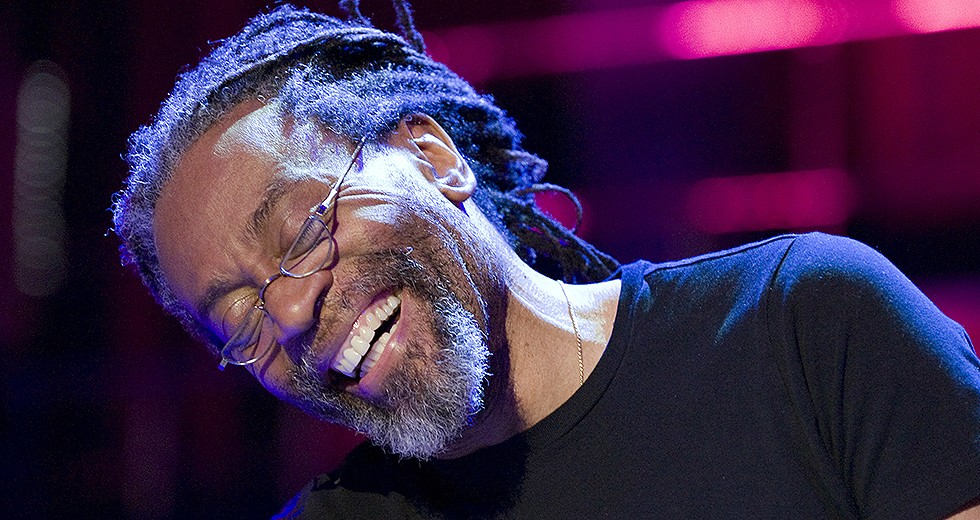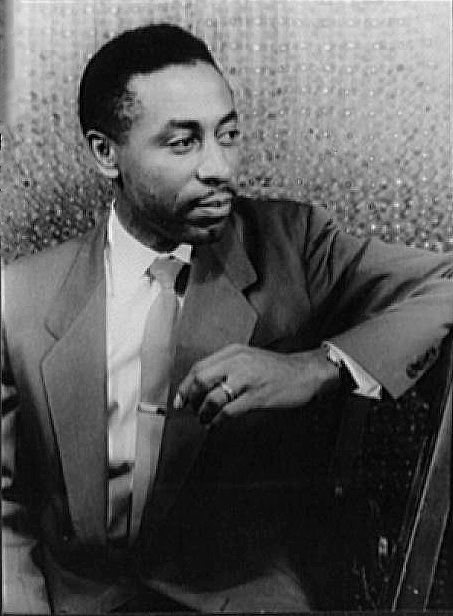
Bobby McFerrin’s signature hit, “Don’t Worry, Be Happy,” barely begins to define this inimitable singer. Indeed, to call him just a singer seems too limiting, because his solo concerts are more like sound spectaculars, with scat, vocalisms and all manner of sound effects — anything from a Harpo Marx-style horn to flapping wings.
In addition to his vocal performances, this multifaceted musician served as creative chair of the St. Paul (Minn.) Chamber Orchestra in 1994-99 and has guest conducted many of the world’s top orchestras, starting with the San Francisco Symphony in 1990 and including the New York Philharmonic, Israel Philharmonic and Vienna Philharmonic. (Even on these programs, he sometimes can’t resist mixing the expected classical fare with his brand of vocal improvisations, such as leading the musicians in an a cappella vocal version of the William Tell Overture.) He will conduct the Chicago Symphony Orchestra when it launches its annual summer residency at Ravinia with a July 8 concert featuring highlights of George Gershwin’s famed opera Porgy and Bess. The program, which will run about two hours, will feature the standards “Summertime,” “My Man’s Gone Now” and more.
“I was about 3 when I first remember conducting,” McFerrin said via e-mail. “I led our home stereo system in a rendition of a Beethoven symphony. I actually think it might have been the Seventh, which is what I conducted when the San Francisco Symphony let me conduct the orchestra on my 40th birthday. I prepared for that very seriously.”
He studied with Gustav Meier, director of the graduate conducting program at Baltimore’s Peabody Institute, took part in the Tanglewood Music Center’s prestigious summer conducting program and spent considerable time with the scores ahead of that 1990 concert. “I still didn’t think of conducting as a career goal,” he said. “I just wanted that musical experience. But then the phone started ringing, and for a while I did a fair amount of conducting. It’s been a fantastic experience. I’ve always been a singer first, though, and for the last decade, conducting has been a pretty small percentage of my overall work.”
But lately, McFerrin’s interest has sparked anew. This past season, he led a Gershwin program with several American orchestras that included An American in Paris and Concerto in F, and this summer he returns to Porgy and Bess. He first conducted a concert version of the opera in the late 1990s partly in honor of his father, baritone Robert McFerrin, who sang the role for Sidney Poitier in the 1959 film version, released when the younger McFerrin was 9 years old.
“Gershwin definitely provided the soundtrack to part of my childhood,” he said. “We’d been living in New York, where my dad sang with both the Met and [New York] City Opera. When he got the call to sing Porgy and decided to move our family out to California, he played Porgy and Bess and all of Gershwin’s music, all the time. It was just always there.”
Porgy and Bess, which premiered in Boston on Sept. 30, 1935, and opened 10 days later at New York’s Alvin Theatre, running for 124 performances, launched what became a truly American brand of opera. Gershwin had read DuBose Heyward’s novel Porgy in 1926 and set to work on an operatic adaptation eight years later, with the author and the composer’s brother, noted lyricist Ira Gershwin, collaborating on the opera’s libretto with Heyward. Drawing musical inspiration from the African-American Gullah community in Charleston, S.C., where the opera is set, he infused his score with a jazzy exuberance and the bluesy call of spirituals.
McFerrin has a rich background in jazz, having performed with such notables in the field as pianists Chick Corea (the two began a European tour together on June 11), Herbie Hancock and Joe Zawinul and drummer Tony Williams. “I feel a kinship with Gershwin,” McFerrin said, “in having my ears filled with all kinds of music, having an impulse to integrate all the sounds I love. I think I’m uniquely qualified to help orchestras dig in to the swing feel [of Porgy and Bess], deepen their relationship to the blues harmonies and approach the piece like jazz musicians.”
The Ravinia performance of Porgy and Bess highlights, will feature soprano Nicole Cabell, 2005 winner of the BBC Singer of the World Competition (and an alumna of Lyric Opera’s Ryan Opera Center), and baritone Brian Stokes Mitchell, a Broadway star who has enjoyed success in television and cinema as well. Also appearing will be baritone Stephen Salters, soprano Lauren Michelle and contralto Gwendolyn Brown.
Josephine Lee, president and artistic director of the Chicago Children’s Choir, has assembled a special chorus for the evening. Lee and McFerrin have worked together several times, including live performances of songs from McFerrin’s 2010 “VOCAbuLarieS” album. “The program that Josephine and her team have built is phenomenal,” McFerrin said. “She stays focused on the joy of music-making and instills that in the kids without ever diminishing a commitment to excellence or a sense of the awesome responsibility of asking for the audience’s time and attention. I’m a huge fan.”
For part of its history, Porgy and Bess suffered from perceptions of racism, and some black singers refused to take part in productions of it. But most of that stigma has fallen away since a milestone 1976 revival by the Houston Grand Opera, which restored Gershwin’s complete original score and fully confirmed it as a 20th-century operatic masterwork.
“I’m a musician,” McFerrin said, “not a sociologist or a commentator on sociopolitical issues. My point of view as a musician is that I can feel George Gershwin’s sincere and heartfelt impulse to tell this story in this musical language and to point out the ways the story is universal. I’m moved by the music. Sure, it raises issues, but ultimately for me the piece is a valid artistic statement, born of a specific time in American culture.”
Kyle MacMillan, former classical music critic of the Denver Post, is a Chicago-based arts writer.
